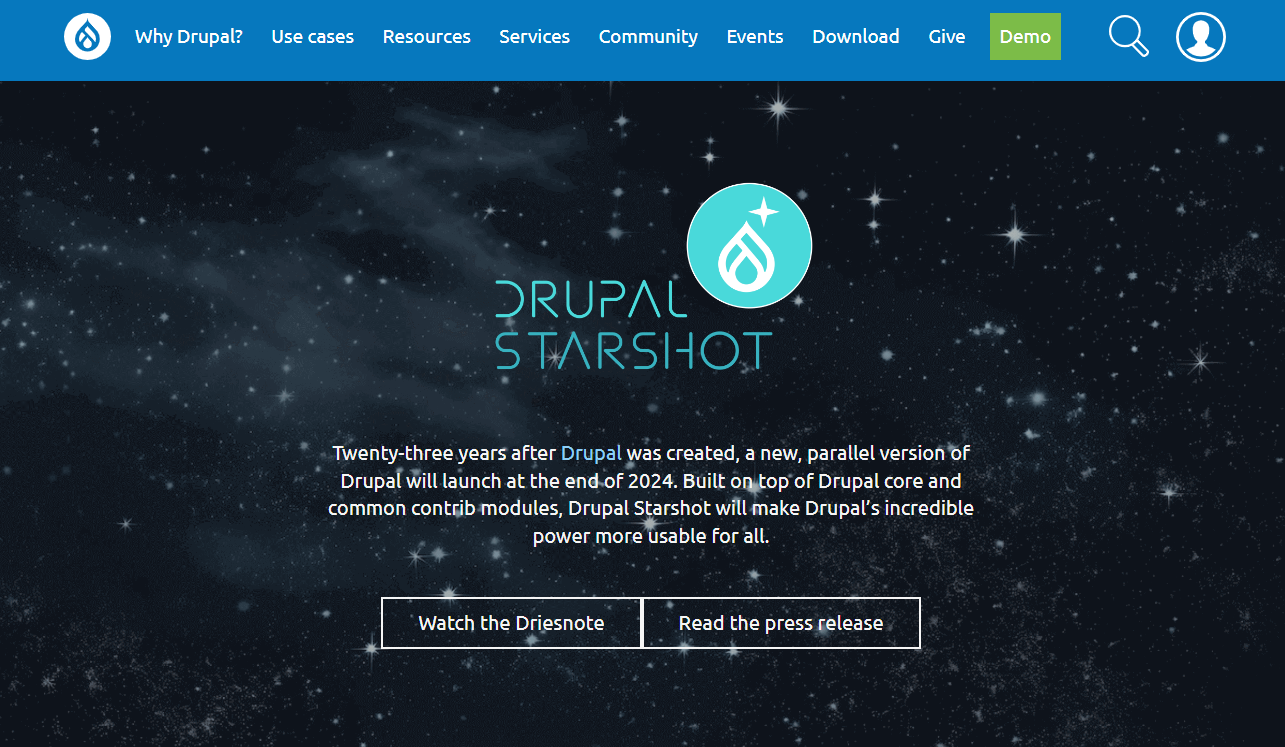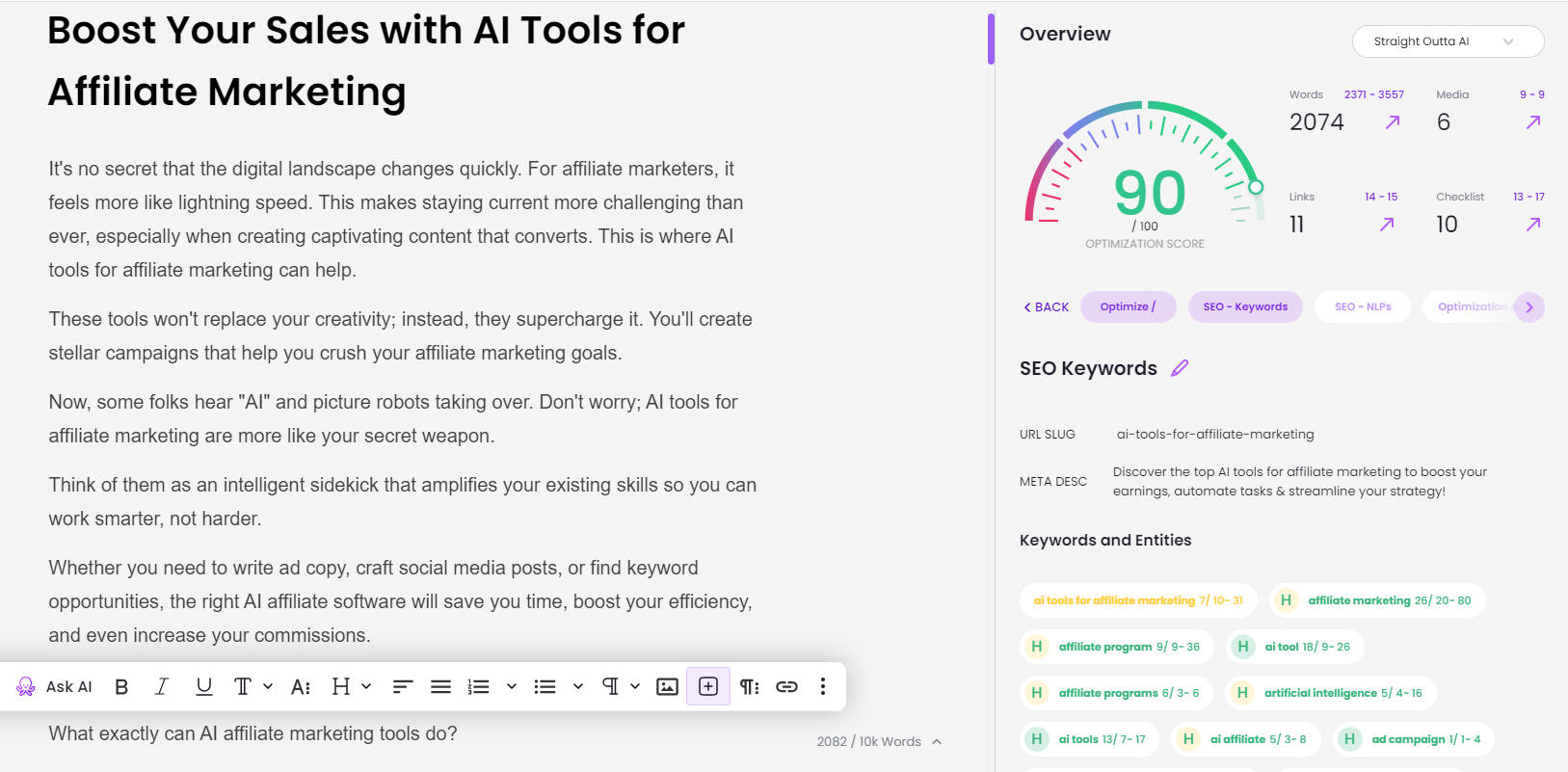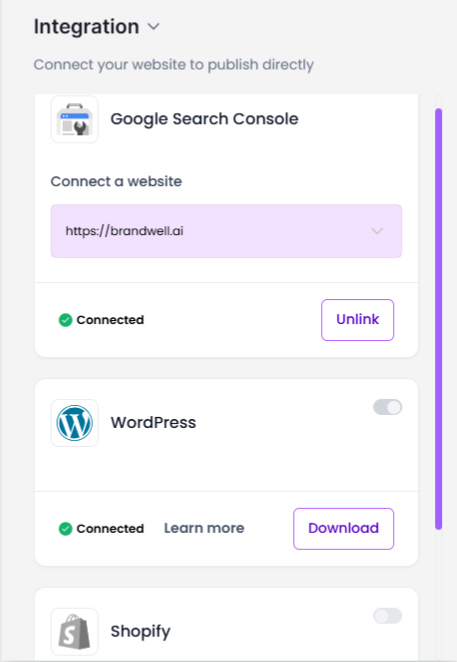Discover top guides, trends, tips and expertise from AIO Writers

Hey there, fellow marketers! If you’ve landed here, chances are you’re looking for the best content management system (CMS) that will not only help you build and manage your website but also give your SEO efforts a serious boost.
We all know that having a beautiful website is just the tip of the iceberg; what really matters is getting found by your audience. And that’s where a top-notch CMS comes into play.
Which CMS is best for SEO?
In this post, we’re diving into the 10 best CMS options that can take your SEO game to the next level. Whether you’re a seasoned webmaster or just starting out, choosing the right CMS can make or break your SEO strategy.
Let’s explore the features, benefits, and SEO superpowers of these platforms to help you make an informed decision. Your journey to better search engine rankings starts here!
Table Of Contents:
- Why Content Management Systems are Crucial to SEO
- 10 Best Content Management Systems for SEO
- FAQs: Which CMS is Best for SEO?
- Conclusion
Why Content Management Systems are Crucial to SEO
A content management system is essential for SEO because it simplifies the creation, editing, and management of website content.
High-quality, regularly updated content is crucial for SEO, as search engines favor websites that provide valuable, fresh information. A good CMS makes it easy for non-technical users to keep the website up-to-date and relevant, which is vital for maintaining and improving search engine rankings.
On-page SEO features are another significant advantage of using a CMS. Many platforms come with built-in SEO tools or plugins that facilitate the optimization of critical on-page elements that help search engines understand the content of your pages and rank them appropriately.
CMS systems also allow for the customization of URL structures, enabling the creation of SEO-friendly URLs that enhance a website’s crawlability and indexing.
Mobile optimization is increasingly important in SEO, and a CMS that supports responsive design ensures that websites perform well on all devices. This improves user experience and is a significant ranking factor for search engines like Google.
Security is another crucial aspect of SEO that a CMS addresses effectively. A CMS that provides robust security features helps maintain the website’s integrity and improves its search engine ranking.
Plus, advanced CMS platforms allow the implementation of structured data and schema markup, which help search engines better understand content and enhance search results with rich snippets, improving visibility and click-through rates.
In summary, content management systems are important to SEO because they provide the tools and functionalities needed to create, manage, and optimize website content efficiently. It ensures that best practices are followed, performance is optimized, and the site remains secure, all of which are crucial for achieving and maintaining high search engine rankings.
So which CMS is best for SEO? Here are our Top 10.
10 Best Content Management Systems for SEO
1. WordPress
When it comes to content management and search engine optimization, WordPress is the go-to platform for many website owners. And for good reason.
With its vast library of SEO plugins and intuitive interface, WordPress makes it easy to optimize your site for search engines. You can customize permalinks, meta tags, and XML sitemaps with just a few clicks.
WordPress is a dream come true for SEO enthusiasts. SEO tools like Yoast SEO and All in One SEO Pack give you the ability to control every aspect of your site’s optimization. These plugins offer features like keyword optimization, readability analysis, and automatic meta-tag generation. They even provide detailed reports on your site’s SEO health, so you can identify and fix any issues.
However, SEO isn’t solely focused on pleasing search engines. It’s equally important to deliver an exceptional user experience. WordPress excels in this area, too.
With thousands of responsive themes and customization options, you can create a site that looks great and functions flawlessly on any device. This is crucial, as search engines prioritize mobile-friendly sites in their rankings.
When you get right down to it, WordPress is pretty much unbeatable as an SEO-friendly CMS platform. It’s flexible, scalable, and easy to use — making it the go-to choice for organic search engine optimization.
Whether you’re a seasoned pro or just starting out, WordPress provides all the tools you need to boost your site’s SEO and attract more organic traffic.

2. Joomla
Joomla is a powerful open-source CMS that offers a range of SEO-friendly features. It allows you to easily create search engine-friendly URLs, generate XML sitemaps, and add meta tags to improve your website’s visibility in search results.
One of the standout features of Joomla is its extensive library of SEO plugins. These plugins extend the platform’s functionality and help you optimize your content even further. From generating XML sitemaps to adding structured data markup, there’s a plugin for just about everything.
I’ve used Joomla on several projects, and I’ve always been impressed with its flexibility and customization options. The ability to fine-tune every aspect of your website’s SEO is a huge advantage, especially for businesses in competitive industries.
If you’re looking for a CMS that gives you complete control over your website’s SEO, Joomla is a good option. With its robust feature set and extensive plugin library, it’s a top choice for businesses that want to dominate the search engines.

3. Drupal
Need a CMS that can keep up with your SEO aspirations? Check out Drupal – this open-source headless CMS powerhouse is loaded with features and ready to be molded to your unique vision.
One of the standout features of Drupal is its ability to create responsive websites that look great on any device. This is crucial for SEO, as Google now prioritizes mobile-friendly sites in its search results.
Drupal’s headless CMS capabilities let you separate the front-end and back-end, giving you the flexibility to create a stunning design while optimizing site performance.
Imagine your content reaching people through websites, mobile apps, and even smart speakers. With a headless CMS, that’s not just a dream – it’s a reality. By delivering your content to multiple channels and devices, you can tap into fresh SEO opportunities and expand your audience like never before.
Drupal also makes it easy to optimize existing content for search engines. You can add meta tags, create XML sitemaps, and set up URL redirects all from within the Drupal interface.
Plus, with modules like Metatag and Redirect, you can automate many of these tasks and save time on manual optimization. This allows you to focus on creating high-quality content that engages your audience and drives organic search traffic.
Drupal may have a learning curve that’s steeper than other headless CMS options, but its flexibility and power are hard to beat. With the ability to optimize websites for search engines and its headless CMS capabilities, businesses and organizations can take their SEO to new heights.

4. HubSpot CMS Hub
HubSpot is known for its comprehensive inbound marketing tools, and its CMS Hub is no exception. It’s an all-in-one platform that combines content management with powerful SEO features.
One of the things I love about HubSpot CMS Hub is its focus on content optimization. It provides SEO recommendations based on best practices, helping you create content that ranks well in search engines.
The built-in analytics tools are also a huge plus. You can track your SEO performance and make data-driven decisions to improve your strategy.
And with the A/B testing capabilities, you can experiment with different variations of your content to see what resonates best with your audience.
As someone who’s used HubSpot CMS Hub extensively, I can say that it’s a fantastic option for businesses that want to streamline their content management and SEO efforts. The integration with HubSpot’s CRM platform is also a nice bonus, allowing you to align your content with your overall marketing strategy.

5. Adobe Commerce (Magento)
Want to give your online store a competitive edge? Consider building it with Magento, an e-commerce CMS that’s packed with features designed to help you optimize your site for search engines. From customizable meta tags to clean, search-friendly URLs, Magento makes it easier to get your products discovered by the right audience.
Magento’s powerful product page optimization features can help you boost your search engine rankings and drive more traffic to your site. With the ability to craft compelling product descriptions, optimize your images with descriptive alt tags, and showcase genuine customer reviews and ratings, you’ll be well on your way to attracting more potential buyers.
Plus, with Magento’s layered navigation and faceted search options, you can make it easy for customers to find what they’re looking for on your site. This can help improve your search engine results and drive more qualified traffic to your product pages.
Want to supercharge your SEO game? Integrating Magento with top-notch tools like Moz and Semrush can help you keep a pulse on your site’s performance and pinpoint areas that need some TLC.
Magento’s also got your back with extensions designed to rev up your site’s speed and performance. Full Page Cache and Varnish Cache are your secret weapons for faster load times and better search results rankings.
For e-commerce businesses, Magento offers a range of powerful SEO features and capabilities. Its customizable URLs and meta tags, product optimization options, and advanced extensions make it a top choice for those looking to drive organic search traffic and sales.
While it may have a steeper learning curve than website builders, Magento’s SEO capabilities are hard to beat in the e-commerce space. If you’re serious about optimizing your online store for search engines, Magento is worth considering.

6. Webflow
Webflow is a visual website builder that combines user-friendly design tools with a powerful content management system. It’s a great option for businesses that want to create stunning websites without sacrificing SEO.
One of the primary advantages of Webflow is that it generates clean, semantic HTML5 code, crucial for search engine crawling and indexing. This ensures that search engines can easily read and understand the website content.
Webflow also allows users to customize meta titles, descriptions, and keywords for each page, which are essential for improving search engine rankings and click-through rates from SERPs.
Webflow automatically generates XML sitemaps and updates them as changes are made to the site, ensuring that all pages are discoverable by search engines and facilitating efficient crawling and indexing.
Security is another significant factor for SEO, and Webflow addresses this by offering free SSL certificates for all websites, ensuring that sites are served over HTTPS. This not only enhances security but also potentially improves search engine rankings.
Moreover, Webflow’s responsive design capabilities ensure that websites look and perform well on all devices, a critical factor for SEO that enhances user experience and search engine rankings.
Webflow also provides features to enhance image search optimization and manage URL changes effectively. Users can add alt text to images, helping with image search optimization and providing context to search engines about the content of the images.
The platform allows users to set up 301 redirects, essential for maintaining SEO value when URLs change, ensuring that link equity is preserved and that users and search engines are directed to the correct pages.
Webflow sites are optimized for performance, prioritizing fast loading speeds, which enhance user experience and are favored by search engines, contributing to better SEO performance.
To further support SEO efforts, Webflow integrates with various SEO auditing tools that help users identify and fix SEO issues, providing insights and recommendations to improve on-page SEO elements. The platform supports adding custom code, including schema markup, which helps search engines understand the context of content and can enhance search visibility through rich snippets.
Users can also set custom canonical tags to prevent duplicate content issues, ensuring that search engines know the preferred version of a page. These features collectively make Webflow a powerful CMS for SEO, enabling users to build and maintain websites that are well-optimized for search engines and capable of achieving high rankings in search results.
I’ve used Webflow for several client projects, and I’ve been consistently impressed with the results. The ability to create custom designs while still maintaining SEO best practices has been a game-changer for many businesses.

7. Wix
Wix is a popular website builder that offers a range of features for creating and managing your online presence. While it may not be as flexible as some other content management systems, it does offer some solid SEO tools.
One of the standout features of Wix is its SEO Wiz tool, which provides personalized recommendations for optimizing your site. It analyzes your pages and suggests improvements for things like meta tags, headings, and content.
Wix also offers features designed to help reduce your site’s bounce rate, which is a key factor in SEO. For example, you can easily add custom 404 pages to keep visitors engaged even if they hit a dead end.
Wix’s mobile-friendly templates and responsive design options ensure your website looks stunning and functions flawlessly on any device, keeping visitors hooked and engaged.
For those looking for more advanced SEO features, Wix does have some limitations. While you can customize your meta tags and headings, you don’t have full control over your site’s HTML and CSS.
Wix offers some pretty sweet SEO apps and integrations to help take your optimization game to the next level. The Site Booster app, for example, can help you fine-tune your content and images so they’re more visible to search engines.
While Wix may not be the most advanced option for SEO, it does offer a user-friendly platform with built-in SEO elements. Its SEO Wiz tool and mobile-friendly design options make it a solid choice for small businesses and individuals looking to optimize their online presence.

8. Squarespace
Squarespace is another popular website builder that offers a range of features for creating stunning web pages. While it may be known more for its design capabilities than its SEO tools, it still offers some solid options for optimization.
Every time you add new content, Squarespace automatically creates search engine-friendly meta tags and meta descriptions based on what you’ve written.
Squarespace also includes SSL certification for all sites, which is a must-have for SEO. Search engines prioritize secure sites, so having that little padlock icon next to your URL can give you a boost in the rankings.
Plus, Squarespace makes it easy to set up URL redirects, which is important for maintaining your site’s SEO when you move or delete pages. You can set up 301 redirects to ensure that any traffic to old URLs is sent to the correct new page.
Squarespace’s SEO features are a good starting point, but they may not be enough for those who want to optimize their site to the fullest. Since you can’t completely control your HTML and CSS, you might run into some roadblocks when trying to make advanced tweaks to improve your on-page SEO.
However, Squarespace does offer integrations with popular SEO tools like Google Search Console and Bing Webmaster Tools. These integrations allow you to track your site’s search performance and identify areas for improvement.
While Squarespace may not have the most sophisticated CMS for SEO, it still packs a punch with its built-in optimization features. From automatic tagging and meta descriptions to SSL certification and URL redirect options, Squarespace is a top choice for those who value design and user-friendliness.
Plus, with integrations with popular SEO tools, you can track your site’s performance and make data-driven decisions for optimization. While it may not be the most flexible option out there, Squarespace is certainly worth considering for those looking for a balance of form and function.

9. Shopify
Shopify is a popular CMS platform designed specifically for e-commerce websites. It offers a range of built-in SEO features to help online stores attract organic traffic and improve their search engine rankings.
One of the things I love about Shopify is its user-friendly interface. Even if you’re not an SEO expert, you can easily optimize your product pages and implement a comprehensive SEO plan to boost your online visibility.
The platform also provides robust analytics tools to help you track your SEO performance. You can see which keywords are driving traffic to your store and make data-driven decisions to improve your rankings.
As someone who’s worked with many e-commerce businesses, I can confidently say that Shopify is a top choice for those looking to optimize their online store for search engines. The seamless integration of SEO features makes it a breeze to attract organic traffic and drive sales.

10. Adobe Experience Manager
Adobe Experience Manager offers a comprehensive set of features that cater to the needs of enterprise-level digital experience management.
One of its key features is the ability to create clean, readable, and SEO-friendly URLs, helping search engines understand the website’s structure and improve rankings. AEM also allows users to manage metadata such as title tags, meta descriptions, and keywords for each page, which are crucial for improving search engine rankings and click-through rates.
AEM automates several SEO tasks to streamline processes for users. The platform can generate and update XML sitemaps automatically, ensuring that all pages are easily discoverable by search engines. It also provides tools for creating and managing robots.txt files, guiding search engine crawlers on which pages to index and which to exclude. These features help prevent duplicate content issues and ensure that only relevant pages are indexed.
For content optimization, AEM has built-in tools for keyword analysis and content recommendations to ensure that content is search-engine friendly.
Mobile optimization is another critical aspect of AEM’s SEO capabilities, as the platform supports responsive design and mobile optimization to ensure websites perform well on all devices. This improves the user experience and positively impacts search engine rankings.
For optimizing website performance, AEM offers caching, code minification, and image optimization features, leading to faster load times and better SEO results.
Lastly, AEM’s integration with Adobe Analytics allows users to track SEO performance and gain insights into user behavior. This data helps refine SEO strategies and improve content based on effective tactics. Developers also benefit from customizable HTML markup in AEM, ensuring all necessary SEO tags and elements are properly implemented.
These comprehensive features make AEM a robust platform for managing SEO effectively.

Grow Your Website With BrandWell
Now that you have chosen a content management system, how do you actually create content for your blog or website?
Sure you can hire a freelance writer, or perhaps write the content yourself if you have the skill, but that would take up so much of your time — time that is best used for improving your product, building relationships with your audience, and growing your brand.
With the arrival of super intelligent AI tools, there is no reason to do all the grunt work manually. With BrandWell, you can leave all the heavy lifting to AI — including keyword research, competitor analysis, topic clustering, content generation, and SEO.

You also get free access to our best-in-class AI Detector and Plagiarism Checker to make sure all of the content you upload to your CMS ranks well in search engines.
If you’re using WordPress or Shopify, you don’t even have to copy-paste your blog post because BrandWell syncs directly to these platforms, allowing you to publish from inside the app.

FAQs: Which CMS is Best for SEO?
Which CMS has the best SEO?
The best CMS for SEO depends on your needs, but popular options like WordPress excel with SEO-friendly features, plugins like Yoast SEO, and customization flexibility. Other strong contenders include HubSpot CMS for integrated marketing tools and Wix for ease of use with built-in SEO capabilities.
Does CMS matter for SEO?
Absolutely. Your CMS matters for SEO because it affects site performance, mobile responsiveness, URL structure, and access to SEO tools. A good CMS simplifies on-page optimizations, technical SEO tasks, and content management to improve your search rankings.
Which platform is best for SEO?
The best platform for SEO depends on your goals, but WordPress is often considered the top choice due to its flexibility, robust SEO plugins, and ability to customize. Other great options include HubSpot CMS for integrated marketing features and Shopify for e-commerce SEO.
Is WordPress still the best CMS?
Yes, WordPress remains one of the best CMS platforms in 2025 due to its flexibility, vast plugin ecosystem, and SEO-friendly features. However, alternatives like HubSpot CMS, Webflow, and Shopify may be better suited for specific needs like marketing integration, design control, or e-commerce.
Conclusion
So, which CMS is best for SEO? The truth is, it depends on your unique needs and goals.
WordPress is a fan favorite for its flexibility and endless SEO plugins, while HubSpot CMS Hub offers built-in optimization features that take the guesswork out of SEO.
Drupal and Magento are powerhouses for complex, large-scale sites, and Shopify is the go-to for e-commerce SEO.
Want to make search engines swoon? Choose a CMS that’s in sync with your SEO strategy. When you’ve got the right tools, creating content that search engines crave becomes a breeze.
With the right CMS in your corner, you’ll be well on your way to dominating the search rankings and driving serious traffic to your site. So go forth and conquer the SEO game – your dream CMS is waiting.

UNLOCK YOUR POTENTIAL
Long Headline that highlights Value Proposition of Lead Magnet
Grab a front row seat to our video masterclasses, interviews, case studies, tutorials, and guides.



